How To Feed When Travelling Your Horse
Horses thrive on routine, however maintaining this routine can be tricky during a competition schedule or when travelling your horse. During these times of change it is important to maintain consistency within your feeding practices whilst also knowing what adaptations are going to be needed to help support your horse properly.
On short journeys for the experienced traveller, you will probably notice little effect, but on longer and more frequent journeys, or for horses that haven’t travelled regularly, things can become a little more complicated. All horses will react differently to travelling; some appear to take it all in their stride, while others can become stressed.
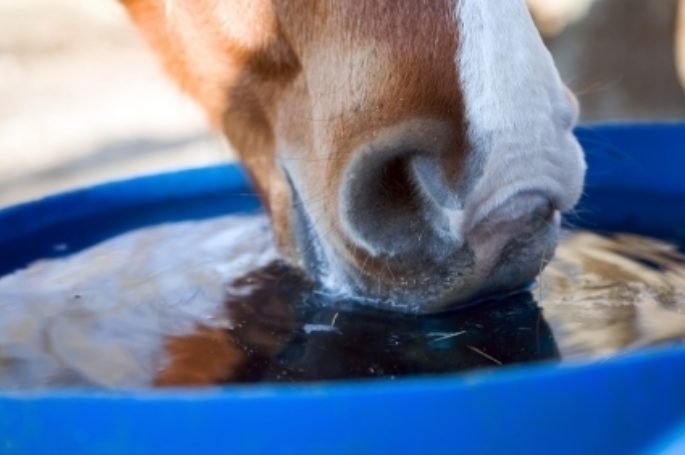
PREPARATIONS BEGIN AT HOME
When horses are travelling or at a show they can be reluctant to drink strange water. Start practicing at home by encouraging your horse to drink flavoured water, for example, flavoured with apple juice or mint. Alternatively make sure that you have enough water containers on board to take enough ‘home’ water with you.
For horses that are fussy or don’t drink when away from home, providing warm water or a mash can help increase water intake in some horses. You can also use carrots or apples for ‘water bobbing’ or grate them into the water to create interest.
Optimum hydration is important for glycogen replenishment post exercise
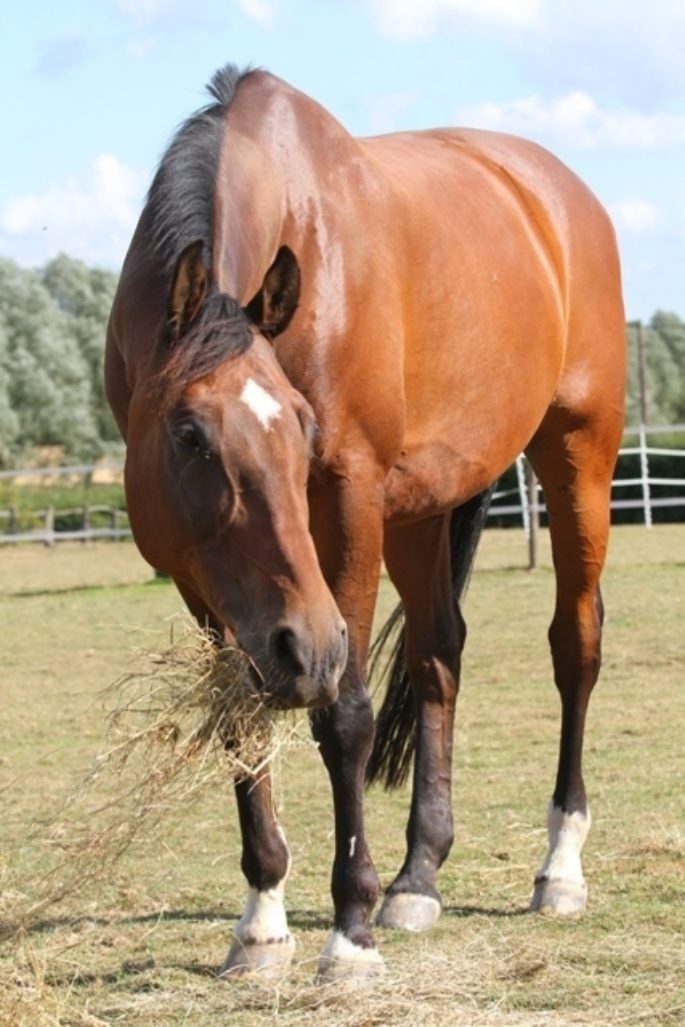
Your horse’s diet should be based on good quality forage (pasture, hay or haylage). This not only helps to keep his digestive system healthy but helps to stimulate saliva production, which is an important buffer against gastric ulcers. Eating forage also encourages water consumption, and fibre in the hindgut traps water and electrolytes forming a reservoir of fluid, which will help to prevent dehydration. Horses should eat no less than 1.5% of their bodyweight in forage, although ideally this will be closer to 2%, i.e. a 500kg horse should be fed 7.5kg – 10kg of forage in a 24-hour period.
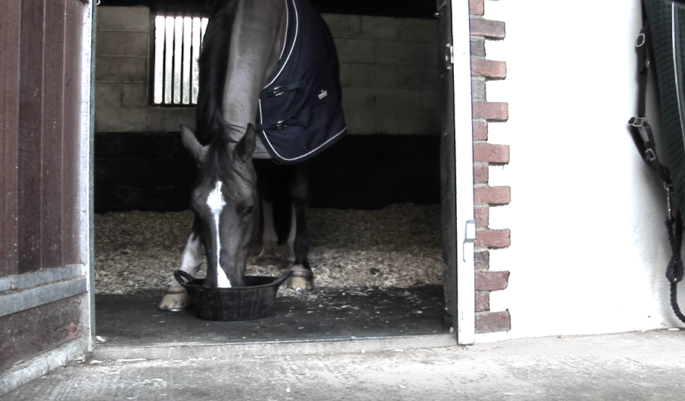
Make sure that the concentrate feed that you are using is the right type for the job you are doing as, alongside a correct fitting program, this will help in ensuring that your horse is being given the best possible start. Do not feed by scoop or coffee mug but weigh your feed accurately to ensure your horse is receiving optimum levels of vitamins and minerals, which are essential to help drive energy cycles and support the immune system. It's also important to ensure that your horses diet is providing the right type of energy. High fibre and fat feeds provide energy to help optimize stamina, whereas cereal based feeds will provide lots of off the leg energy, so ensure that the feed you are using is giving your horse the energy that you want.
Add normal table salt daily to their feed and allow free access to a salt lick. Depending upon the heat, humidity and extent of sweating, salt addition may range from 30-60 grams split over feeds to help minimize feed refusals.
Salt is one of the only minerals that horses have an indisputable appetite for, and a lack of salt can increase the risk of early muscle fatigue, reduced stamina, muscle cramps, dehydration and slow recovery rates.
Consider slow release electrolyte supplements to prevent flooding of the system with electrolytes. When fed alongside normal salt, add to meals post competition, travelling or sweating.
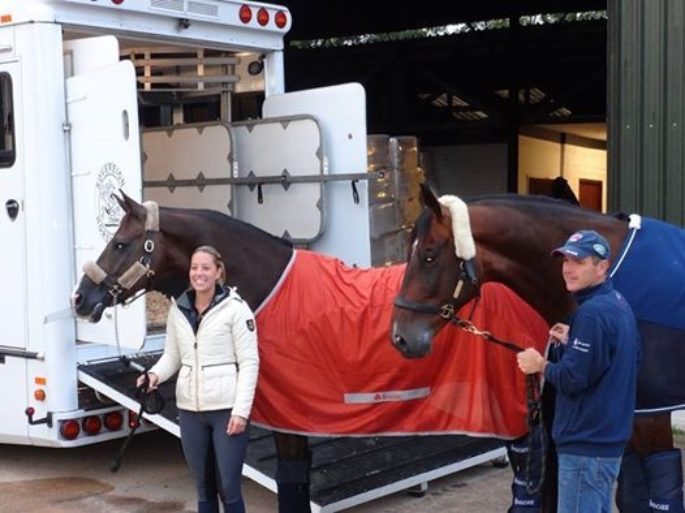
WHEN TRAVELLING
If you are on a long journey then you will need to make regular water stops, at least every two hours. Most horses will sweat when travelling due to the heat produced in a confined space, so water supplemented with electrolytes is important. Make sure you also offer un-supplemented water too. If your horse is reluctant to drink while travelling then offering a soaked, high fibre feed is advised.
It is important that your horse is given forage to eat during his journey. If horses are poor or picky eaters of long forage when travelling offer ‘alternative’ fibre sources to browse on e.g. a bucket of short, chopped chaff alongside their normal hay ration. This will also encourage water intake and help maintain hydration. Once at the destination, allow your horse to regularly pick at the grass or nibble his haynet to keep up saliva production as well as stimulating appetite. Feeding chaff prior to riding or competing is a useful aid in the prevention or development of ulcers.
Alfalfa is high in calcium, which acts as a natural buffer on stomach acid and feeding some chaff before you ride helps to provide a ‘fibre mat’ in the stomach reducing the risk of gastric ulcers caused by acid splash during exercise.
If you are at an all-day event avoid feeding concentrate feed closer than 4 hours before you compete. If you have a horse that becomes very fussy when staying away from home consider taking 3 or 4 different feeds with you to offer your horse a variety of choices to stimulate appetite. On the day, what they eat is less important that what they are eating in the lead up to a competition. If you have a horse that refuses to eat away from home, have a range of feeds in the lorry, that are in small amounts (about 1kg) and offer these as a cafeteria style of feeding to see which peaks your horses interest. Keep them simple and don't mix supplements in with them as this might be what is putting your horse off. If you are away from home for a long period of time, try your horse with a balancer. Pelleted balancers tend to be very palatable and are only fed in very small quantities so wont over-face an already stressed or anxious horse. If your horse manages to a balancer they will be meeting their nutrient requirements.
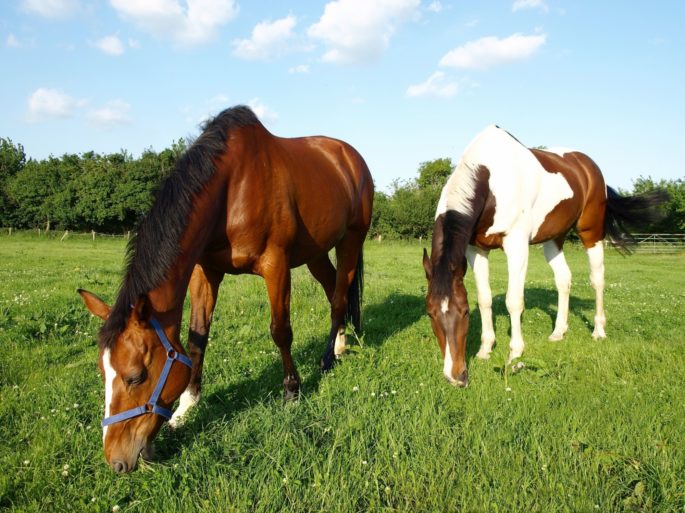
AFTER THE EVENT
Allow your horse to cool down and relax before you re-load him for the journey home, and again, keep offering the water and electrolytes or a sloppy feed. Once at home the best option is to turn your horse out on to some good grass and let him unwind before feeding. Time in the paddock after a long journey not only helps to relax tense muscles but also encourages water intake and appetite stimulation.
If you adjusted your horses ration specifically for the competition, remember to change them back to their normal feed and if they are having some time off, don't forget to reduce their concentrate feed but remember to top-up with a balancer to ensure important nutrients that are required for recovery are still being fed.
NEED SOME GUIDANCE?
If you would like some additional information about a two-part feeding plan please contact our nutritional team on 01622 718487 or email nutrition@saracenhorsefeeds.co.uk
Feed Advice Form
Complete our online form to receive a detailed nutritional plan for your horse or pony from one of our registered nutritionists.
Quick Feed Finder
Use our quick and easy feed finder as a guide to select the right feed for your horse or pony.












